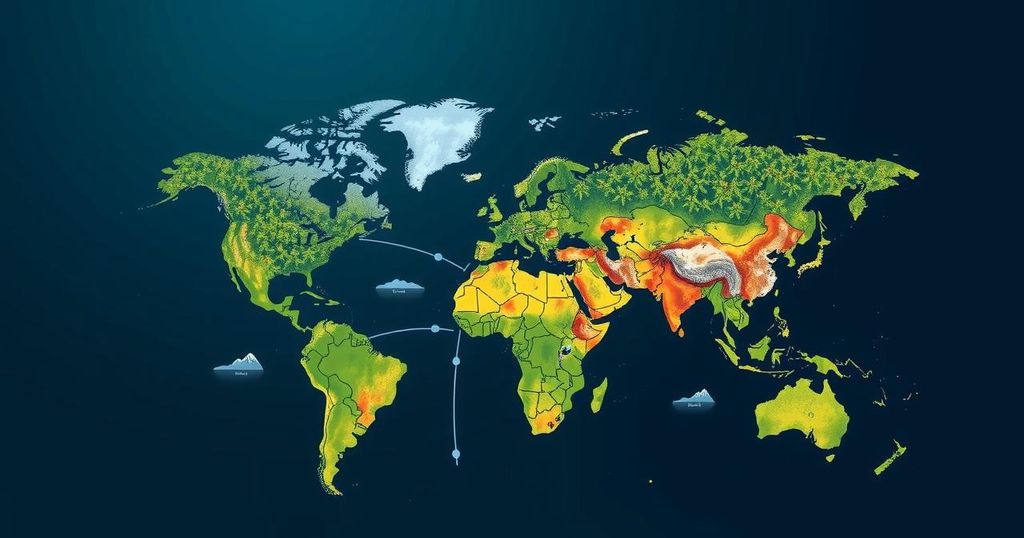Who Should Bear the Cost of Climate Loss and Damage?

The UN climate conference in Baku highlighted the pressing issue of financing climate loss and damage, particularly for vulnerable communities. Proposals included a tax on major oil and gas companies to significantly raise funds aimed at addressing climate impacts. Advocacy for climate justice emphasizes shifting the financial burden from victims to polluters, pushing for practical solutions amid ongoing environmental crises.
At the recent UN climate change conference in Baku (COP29), discussions intensified surrounding a new climate financial framework aimed at addressing the escalating impacts of climate change, particularly on vulnerable communities worldwide. A significant proposal emerged: a tax targeting the world’s largest oil and gas corporations, which, according to analysis from Greenpeace International and Stamp Out Poverty, could exponentially increase the UN Fund for Responding to Loss and Damage. Specifically, a tax on the revenues from these corporations could potentially finance responses to recent extreme weather events intensified by climate change.
For instance, levies on ExxonMobil’s extraction activities could cover half of the expenses incurred from Hurricane Beryl, while taxes from Shell’s operations might mitigate much of Typhoon Carina’s destruction in the Philippines. TotalEnergies could contribute significantly to addressing the ramifications of floods experienced in Kenya. Overall, the implementation of a Climate Damages Tax (CDT) could provide much-needed funds to communities enduring the harsh realities of climate impacts exacerbated by fossil fuel exploitation.
The envisioned CDT, combined with other financial mechanisms, could generate an estimated $900 billion by 2030, providing essential support for governments and affected communities as they combat the troubling effects of climate change. Advocates emphasize the importance of equitable financial responsibility, focusing on the principle of climate justice. The narrative suggests that those who have contributed most significantly to the climate crisis should bear the financial burden, rather than vulnerable populations that are most affected.
Furthermore, recent protests highlighting the plight of those impacted by climate disasters have underscored the urgency of holding major oil companies accountable. These demonstrations included activists delivering poignant reminders of the devastation caused by climate change, symbolized through items representing personal losses from extreme weather events influenced by industrial pollution.
Individual and governmental advocacy for climate justice is more important than ever, particularly as discussions of financial solutions to climate loss and damage continue. Abdoulaye Diallo, co-head of Greenpeace International’s Stop Drilling Start Paying initiative, calls for collective action to ensure that those responsible for climate damage commence their contribution to mitigating its effects.
The climate crisis disproportionately affects the most vulnerable communities worldwide, leading to an urgent call for a financial mechanism to address loss and damage attributed to climate change. Major oil and gas companies have been identified as contributing significantly to this crisis, prompting environmental organizations to suggest taxation as a means to finance recovery efforts. The implications of this taxation would not only provide necessary funds but shift the financial liability from victims of climate change to those who significantly contribute to its causes.
In conclusion, it is imperative that governments and stakeholders recognize the urgent need for a climate damages tax and similar mechanisms to hold fossil fuel companies accountable for their role in the climate crisis. By implementing such measures, a more just and equitable financial landscape can be established, ensuring that those who suffer due to climate change are supported by those who have profited immensely from fossil fuel extraction. The commitment to climate justice must drive these efforts forward.
Original Source: www.ipsnews.net






